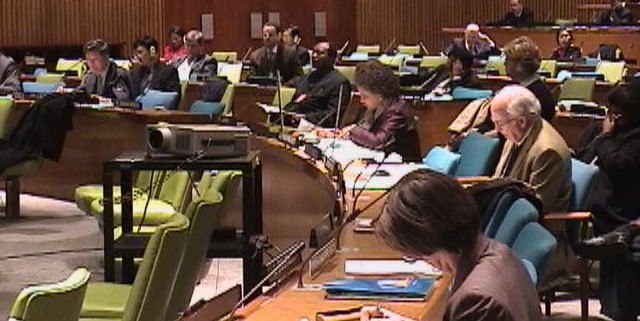The Committee of Experts on Public Administration held its second session at the United Nations in New York from 7 to 11 April 2003. Its theme was “Enhancing the capacity of public administration to implement the United Nations Millennium Declaration.”
Report
Arabic | Chinese | English | French | Russian | Spanish
| Subtopics | Major recommendations/conclusions |
|
Strengthening and revitalizing public administration and the state | The Council may wish to devote its next high-level segment to a debate on revitalizing public administration. The Council should establish linkages between the work of the Commission for Social Development and the work of the Committee. Member States should organize events to celebrate United Nations Public Service Day on 23 June of each year, at the national and local levels, to enhance the perceived image of the public sector; to show recognition for the work of public servants; and to encourage young people to pursue with pride their career in this field. The Secretariat should: - disseminate among Member States and the general public information on the activities related to the United Nations Programme in Public
Administration and Finance; - make use of the network utilized for the United Nations Public Service Awards to reach most sectors of society;
- extend the reach of the United Nations Online Network in Public Administration to the sub-regional level in order to strengthen the capacity of public administration institutions at that level;
- continue to provide, upon request of Member States, technical advisory support in the areas of enhancing the quality of personnel in the public sector; reinforcing governance and public administration systems and institutions; and fostering transparency and accountability, as well as reconstructing public administration in post-conflict countries and situations of decentralized governance;
- intensify leadership development activities, with a particular focus on Africa and developing countries in general, and emphasize capacity-building support to and partnerships with regional and national institutions to provide the necessary training;
- undertake a systematic assessment of institutional capacity requirements in sub-Saharan Africa and other regions of the world, and produce a compilation of experiences and good practices in public administration; and
- embark on a step-by-step approach of researching among the various indicators that can be used to characterize the public sector, and which may be available from other organizations, bearing in mind the following three aspects of evaluating the public sector: efficiency, transparency and participation.
|
|
Human resources capacity development | Given the rapidly changing public administration and human resources needs of Member States, the Committee strongly recommends that it meets annually, instead of biennially, for one week. This would ensure that its input into the work of the Council and its advice to Member States were timely and up to date. Member States should: - establish and/or strengthen their human resources planning and management systems and units, as well as focus on leadership capacity development of future and present leaders in the public sector; and
- professionalize their public service and establish effective incentive structures that enhance recognition of and pride in the public service, while creating a learning organization culture in the public service and tap talent from underrepresented groups.
The Secretariat should: - undertake policy analysis and research in developing human capacity in the public sector of developing countries;
- develop and share tools and guidelines for enhancing human resources planning and management capacities in developing countries (including regional public service charters and manuals on codes of conduct); and
- organize forums (meetings, seminars, workshops) at regional levels, including in small island States, especially for developing countries, to further explore how to strengthen the human resources capacity in the public sector and develop appropriate solutions.
|
|
E-government for improved transparency and public service delivery | Member States should: - take on the challenge of ensuring that the powers of e-government are used to deliver more rapid and improved public services, to enhance transparency and to enable people to increase their say in policy-making decisions, so as to foster greater participation and accelerated development; and
- pay particular attention to ensuring privacy rights and legal protection when establishing e-government systems.
The Secretariat should: - undertake additional work to further analyze and delineate the role of the State as enabler and user of knowledge and technology in order to support and encourage innovation throughout public administration and society as a whole;
- focus its future work in the area of e-government on how to fund e-government and how Governments can secure appropriate financing mechanisms towards the building of learning infrastructures;
- focus on the impact of e-government on poverty reduction, and continue publishing the global e-government survey on an annual basis, while paying special attention to the use of e-government for deepening participation; and
- work on developing appropriate tools for benchmarking the use of e-government and integrate them into the methodology applied by the survey.
|
 مرحباً بكم في الأمم المتحدة
مرحباً بكم في الأمم المتحدة 
